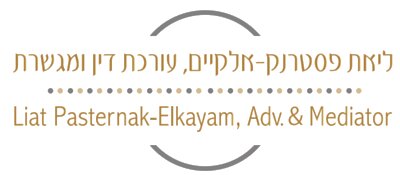Best Inheritance Law Lawyers in Jerusalem
Share your needs with us, get contacted by law firms.
Free. Takes 2 min.
List of the best lawyers in Jerusalem, Israel
1. About Inheritance Law in Jerusalem, Israel
Inheritance law in Israel is a civil framework that governs how a person’s estate is distributed after death. In Jerusalem, like the rest of the country, the same statutory rules apply and disputes are resolved in the courts with the help of counsel. The core purpose is to identify heirs, validate testamentary documents if present, and supervise the transfer of assets to beneficiaries.
Probate and administration are typically handled in the district court system, with executors or administrators appointed to collect assets, pay debts, and distribute the remainder. Real estate located in Jerusalem must be transferred through appropriate registration channels after probate or succession orders are issued. These steps often involve multiple professionals, including lawyers, accountants, and real estate specialists.
Because Jerusalem hosts a diverse population with various religious and cultural communities, personal status matters may intersect with civil inheritance processes. For property and estate matters, however, the civil framework governs the distribution and transfer of assets regardless of religion or community. It is important to engage a qualified lawyer to navigate complex questions of title, taxes, and heirs’ rights.
2. Why You May Need a Lawyer
A Jerusalem inheritance matter frequently requires an attorney to protect your interests and avoid delays. Below are concrete scenarios where legal counsel is essential.
- The will excludes a close heir after a parent dies in Jerusalem and you suspect undue influence. A lawyer can assess validity, challenge the will if warranted, and safeguard your rights as a potential beneficiary.
- No will exists and you are an heir under intestate succession. An attorney helps identify legal heirs, apply for appointment of an executor or administrator, and organize asset distribution in line with the Succession Law.
- Real estate in Jerusalem is owned by multiple heirs and a clear agreement on splitting or selling the property is needed. A lawyer coordinates title transfers, consents, and any required court approvals.
- A will is contested by other family members and you need a strategy to defend your claim. Legal counsel can gather evidence, evaluate testamentary capacity, and handle court filings.
- Foreign assets or heirs abroad complicate the estate and cross-border issues arise. A lawyer can coordinate foreign probate, translation needs, and multi-jurisdictional filings.
- Guardianship or management of assets for minor heirs requires careful planning. An attorney can apply for guardianship orders and set up appropriate financial arrangements.
3. Local Laws Overview
The following statutes and regulatory frameworks are commonly engaged in inheritance matters in Jerusalem. This section highlights the scope and practical impact for residents.
Succession Law, 1965 governs how estates are distributed when there is a will and when there is no will. It identifies priority heirs, the administration process, and the power of executors and administrators. The law has been amended over time to address evolving family structures and property considerations.
Wills Law (regulates the creation and validity of testamentary documents and related execution procedures). A valid will determines how property is allocated, but courts may still scrutinize capacity, undue influence, and formal requirements. In Jerusalem, a will often simplifies asset transfer and minimizes disputes among heirs when properly executed.
Guardianship and Administration Regulations cover the management of minor or incapacitated beneficiaries’ interests. These provisions influence how a portion of the estate is safeguarded or controlled on behalf of a dependent heir and often require court oversight.
For residents of Jerusalem, practical implications include the need to obtain court authorization for complex transfers, ensure property titles are aligned with the probate outcome, and address any cross-border asset issues with appropriate documentation. These laws are implemented through the civil courts and administrative bodies across Israel, including Jerusalem’s local probate pathways.
“Probate matters in Israel are typically filed in the district court and may involve appointment of an executor or administrator, valuation of assets, and distribution to heirs.” Judicial Authority
“The Succession Law governs both intestate and testamentary succession and provides the framework for who inherits and how assets are distributed.” Ministry of Justice
4. Frequently Asked Questions
What is the first step to start probate in Jerusalem?
Gather the decedent’s will (if any), death certificate, and a list of known assets and debts. Contact a Jerusalem inheritance lawyer to assess eligibility and prepare the petition.
How do I challenge a will in Jerusalem?
Consult a lawyer to review capacity, undue influence, and formal defects. You may file a petition with the district court and present evidence supporting your claim.
When does intestate succession apply in Jerusalem?
Intestate succession applies when there is no valid will. The court identifies rightful heirs under the Succession Law and oversees the distribution process.
Where are probate filings made in Jerusalem?
Probate filings are typically made at the district court that has jurisdiction over the decedent's residence and, in many cases, where real estate is located.
Why might a will be declared invalid in Jerusalem?
Possible grounds include lack of testamentary capacity, coercion, fraud, or formal defects in will execution. A lawyer evaluates these factors and guides court action.
Can a non-resident inherit from an estate in Jerusalem?
Yes, non-residents can be heirs if they are legally entitled. Foreign assets require additional documentation and potential cross-border coordination.
Should I hire a lawyer or use a public executor in Jerusalem?
A lawyer provides tailored advice, helps manage court filings, and protects your interests. A public executor may be an option in limited circumstances but is typically less flexible.
Do I need a will if I own property in Jerusalem?
Having a will is strongly advised. It clarifies intent, reduces disputes, and can streamline probate and real estate transfers.
Is there a difference between probate and administration?
Probate refers to validating a will and enabling asset transfer under it. Administration applies when there is no will, appointing an administrator to handle the estate.
How long does probate typically take in Jerusalem?
Timeline varies with complexity, but uncomplicated matters may take several months. Highly contested estates or those with cross-border assets can extend to a year or more.
What documents are typically needed for probate in Jerusalem?
Death certificate, the will (if present), proof of identity for heirs, lists of assets and debts, property titles, and tax documents are common requirements.
How much does it cost to hire an inheritance lawyer in Jerusalem?
Fees vary by case complexity and region. Many lawyers quote a retainer plus hourly rates or a flat fee for specific tasks such as will validation or probate filing.
5. Additional Resources
- The Israel Bar Association - a professional body providing guidance on professional standards and practitioner directories for inheritance matters. Official site: https://www.israelbar.org.il
- The Israeli Courts and Judicial Authority - information on probate procedures, district court jurisdictions, and filing requirements. Official site: https://court.gov.il
- The Ministry of Justice - overview of civil law principles, succession framework, and court procedures related to inheritance. Official site: https://www.justice.gov.il
6. Next Steps
- Clarify your goals and prepare a brief summary of your inheritance issue, including any wills, assets in Jerusalem, and known heirs. Time estimate: 1-2 days.
- Identify a Jerusalem-based inheritance lawyer with experience in probate, wills, and cross-border asset matters. Time estimate: 1-2 weeks.
- Check qualifications and specialization verify bar membership, practice area, and track record with similar cases. Time estimate: 2-5 days.
- Schedule an initial consultation to discuss your case, costs, and strategy. Time estimate: 1-3 weeks depending on availability.
- Request engagement terms including retainer, fee basis, and a written engagement letter. Time estimate: 1 week after consultation.
- Gather documents and timelines assemble death certificate, will, title deeds, asset lists, tax documents, and debt statements. Time estimate: 1-3 weeks.
- Proceed with filing and court steps as advised by your attorney, including probate petitions or intestate filings. Timeline varies by complexity.
Lawzana helps you find the best lawyers and law firms in Jerusalem through a curated and pre-screened list of qualified legal professionals. Our platform offers rankings and detailed profiles of attorneys and law firms, allowing you to compare based on practice areas, including Inheritance Law, experience, and client feedback.
Each profile includes a description of the firm's areas of practice, client reviews, team members and partners, year of establishment, spoken languages, office locations, contact information, social media presence, and any published articles or resources. Most firms on our platform speak English and are experienced in both local and international legal matters.
Get a quote from top-rated law firms in Jerusalem, Israel — quickly, securely, and without unnecessary hassle.
Disclaimer:
The information provided on this page is for general informational purposes only and does not constitute legal advice. While we strive to ensure the accuracy and relevance of the content, legal information may change over time, and interpretations of the law can vary. You should always consult with a qualified legal professional for advice specific to your situation.
We disclaim all liability for actions taken or not taken based on the content of this page. If you believe any information is incorrect or outdated, please contact us, and we will review and update it where appropriate.















